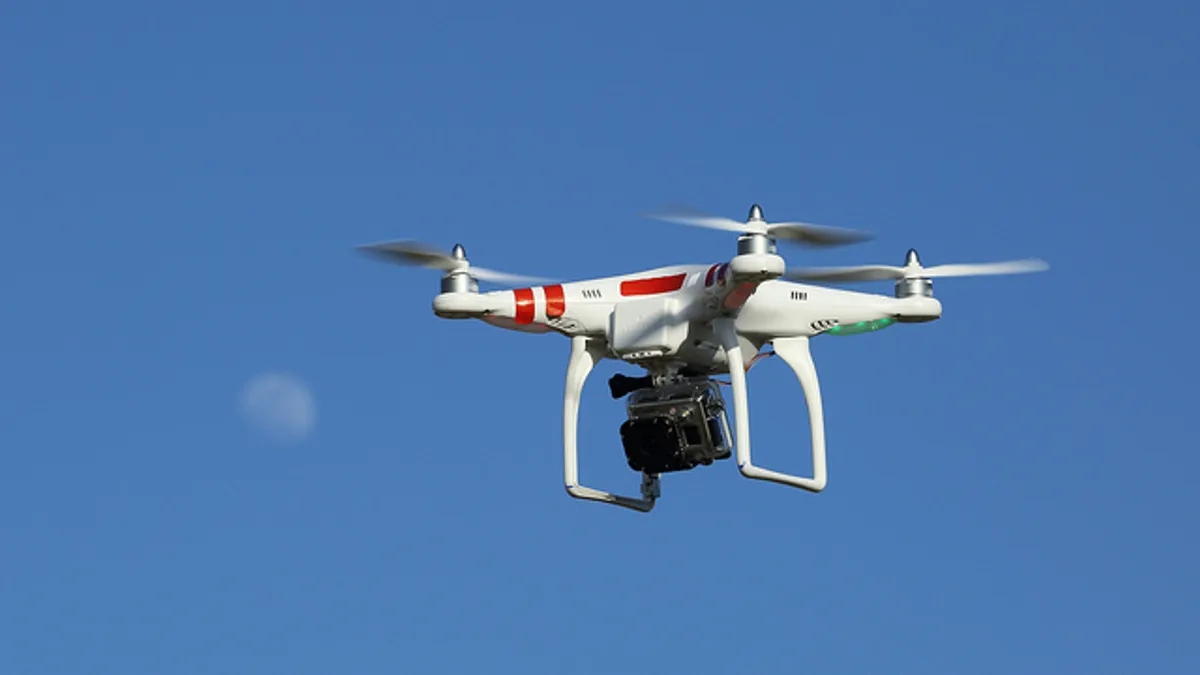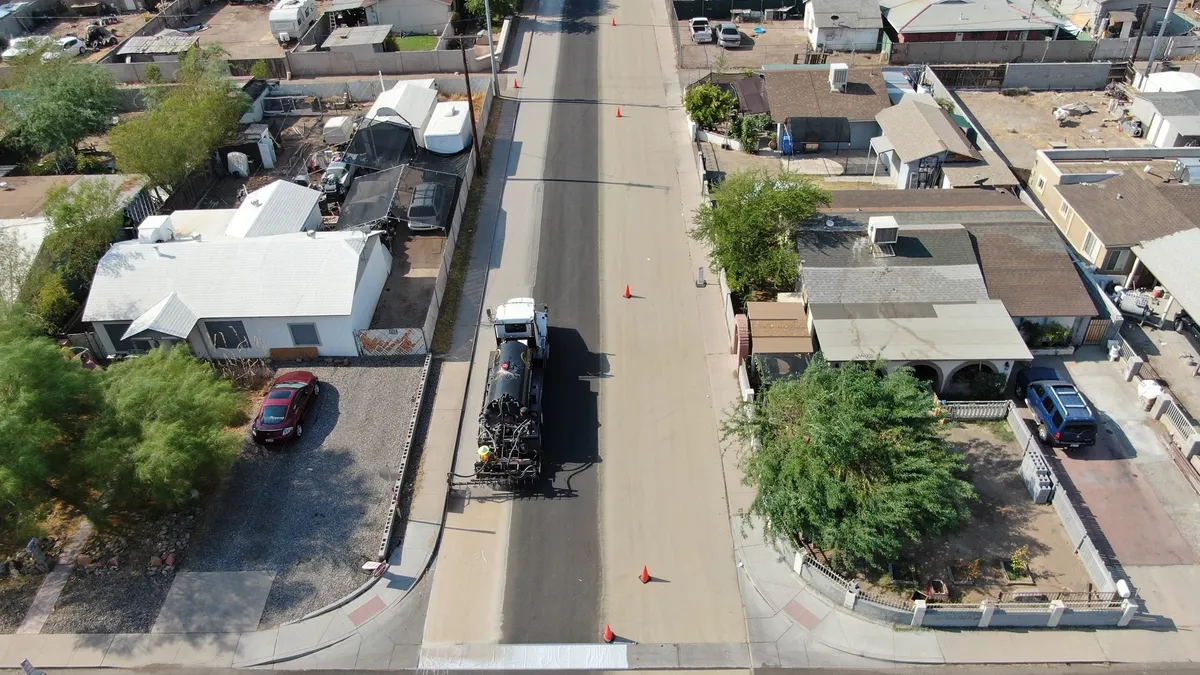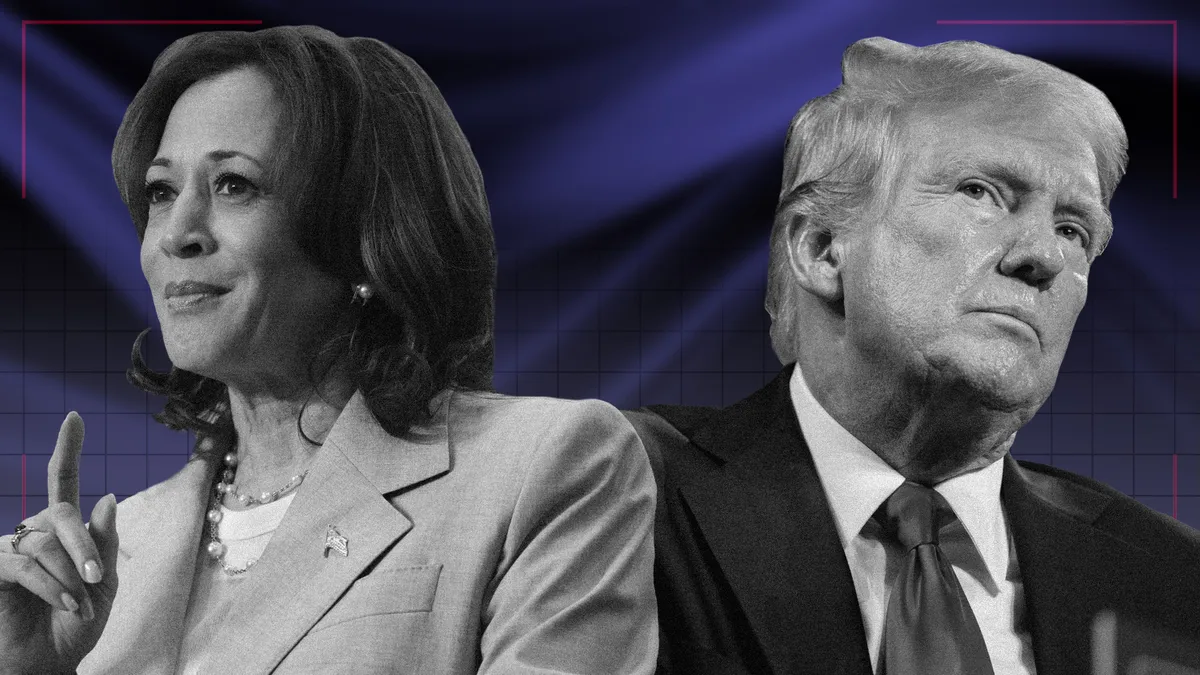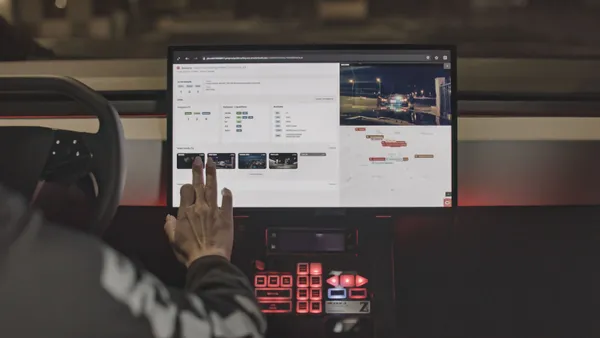Dive Brief:
- The City of Louisville, KY submitted an application to the Federal Aviation Administration (FAA) to deploy drones in areas where gunshots are detected by the city’s new ShotSpotter technology, as reported by WDRB and others. The application is part of the FAA’s pilot program for drone innovation, and if approved, Louisville would be the first city in the U.S. to use drones in this way.
- ShotSpotter is a hidden detection system that uses microphone sensors to find gunfire within seconds. Drones could respond to a location where shots are detected and capture photos of those suspected of firing a gun up to a minute before someone calls 911 to report a shooting.
- "Louisville is known as one of the most innovative cities in the country, so we said, 'You know, what’s a little edgy out there, and how can we put together some new technologies to improve public safety?'" Louisville Mayor Greg Fischer told WDRB. Fischer said he hopes that the technology could help reduce crime where shots are often fired.
Dive Insight:
This application follows President Donald Trump’s executive order last October directing the FAA to launch the UAS Integration Pilot Program, which allows local governments to apply for a drone “innovation zone.” The city should receive a decision from the FAA within 90 days.
It presents an interesting opportunity for local law enforcement, who often struggle to arrive on the scene of a "shots fired" call in time to apprehend any suspects. And with its possible integration into the existing ShotSpotter technology, Louisville appears to be looking to drones to give its police officers more help in arresting anyone who lets off a firearm.
But the technology must be solid, especially when it comes to detecting gunshots. It is possible that such sensors could confuse fireworks or a car backfiring for a gun being fired, which could cause issues if a series of drones start descending on someone’s Fourth of July holiday party.
The Daily Beast also notes security concerns in the community around having microphones and sensors rigged up everywhere, and that it could lead to "disproportionate surveillance of low-income communities." The Daily Beast added that in 2012, the American Civil Liberties Union had worries over whether the microphones could record conversations.
And Louisville would not be the first to try and use automated technology for policing. Earlier this year, Ford applied for a patent for a driverless police car, which would detect traffic violations and could either take action alone or alongside a human police officer.











